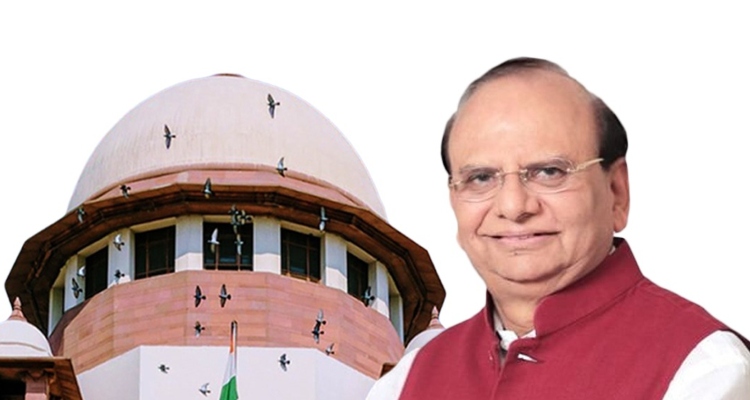
The Supreme Court on Wednesday has directed Lieutenant Governor VK Saxena, who also serves as the chairperson of the Delhi Development Authority, to submit a personal affidavit by October 22 regarding the alleged felling of trees in the Delhi Ridge area.
The directive came during a hearing led by Chief Justice DY Chandrachud and Justices JB Pardiwala and Manoj Misra, who were addressing a contempt case against the DDA and other parties over these allegations.
The court noted some ambiguities in the case and sought clarification on whether there had been any communication with the DDA chairperson regarding the Supreme Court’s permission to fell trees during a site visit on February 3.
The court inquired if the DDA chairperson was aware of the permission granted, and if so, what measures were taken to comply with the court’s directive. It highlighted that tree felling reportedly began on February 16, even before a plea was submitted to the court, which was later dismissed.
The Supreme Court is also interested in updates on restoration efforts for the ecological damage caused by the felling, asking what actions have been taken against officials for allegedly withholding critical information about the tree removal prior to the application being filed. The court requested details on any disciplinary or criminal actions initiated against those responsible.
The case, initially involving DDA vice-chairperson Subhasish Panda and others, focuses on large-scale tree felling in the southern Ridge’s Satbari area for road construction from Chattarpur to the South Asian University. The court had previously expressed dissatisfaction with a misleading affidavit submitted by Panda.
In a related development, another bench of Justices Abhay S Oka and Ujjal Bhuyan had previously issued a criminal contempt notice against Panda. On July 24, a different bench comprising Justices B R Gavai, P K Mishra, and K V Viswanathan addressed concerns over multiple contempt proceedings involving tree felling in the Ridge area, aiming to avoid conflicting orders.
The Supreme Court has scheduled the next hearing for October 22, emphasizing the need for the affidavit to be submitted by that date.




